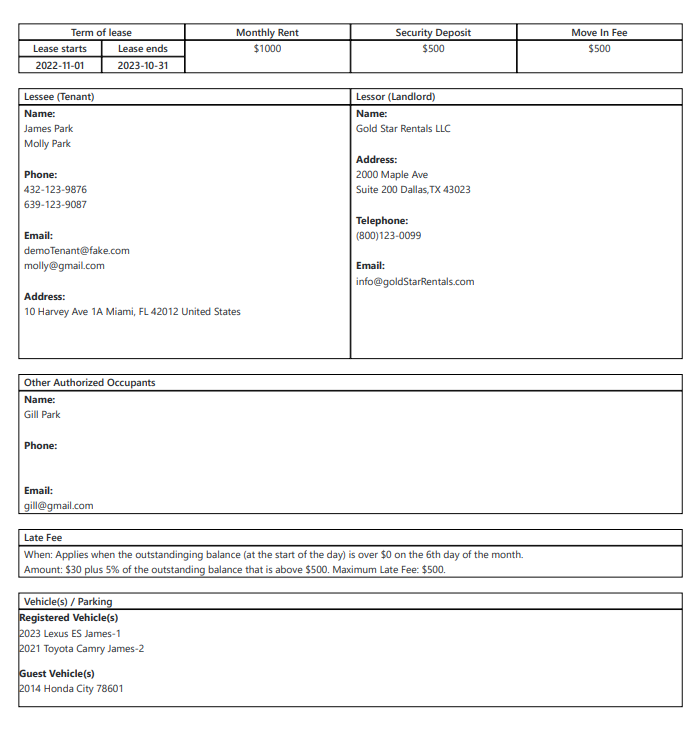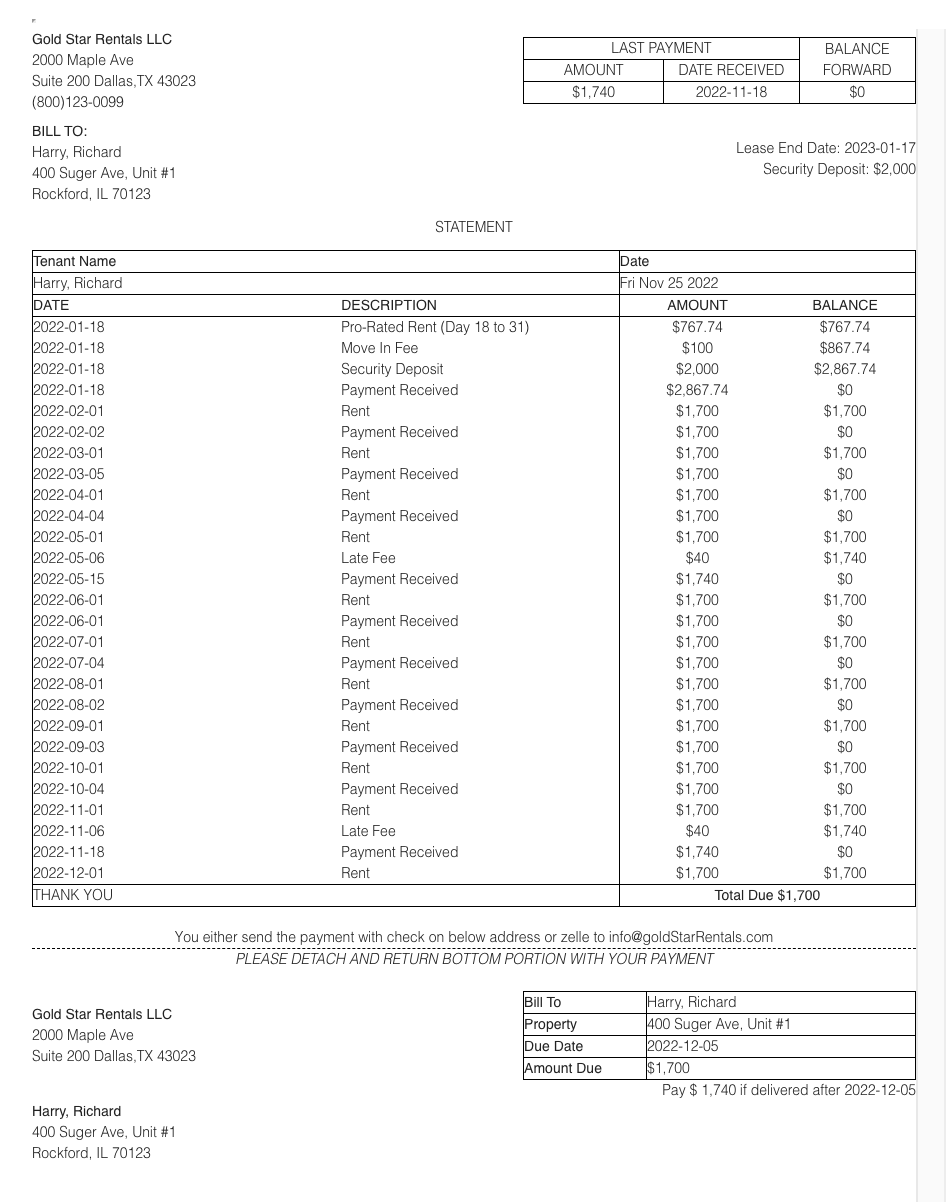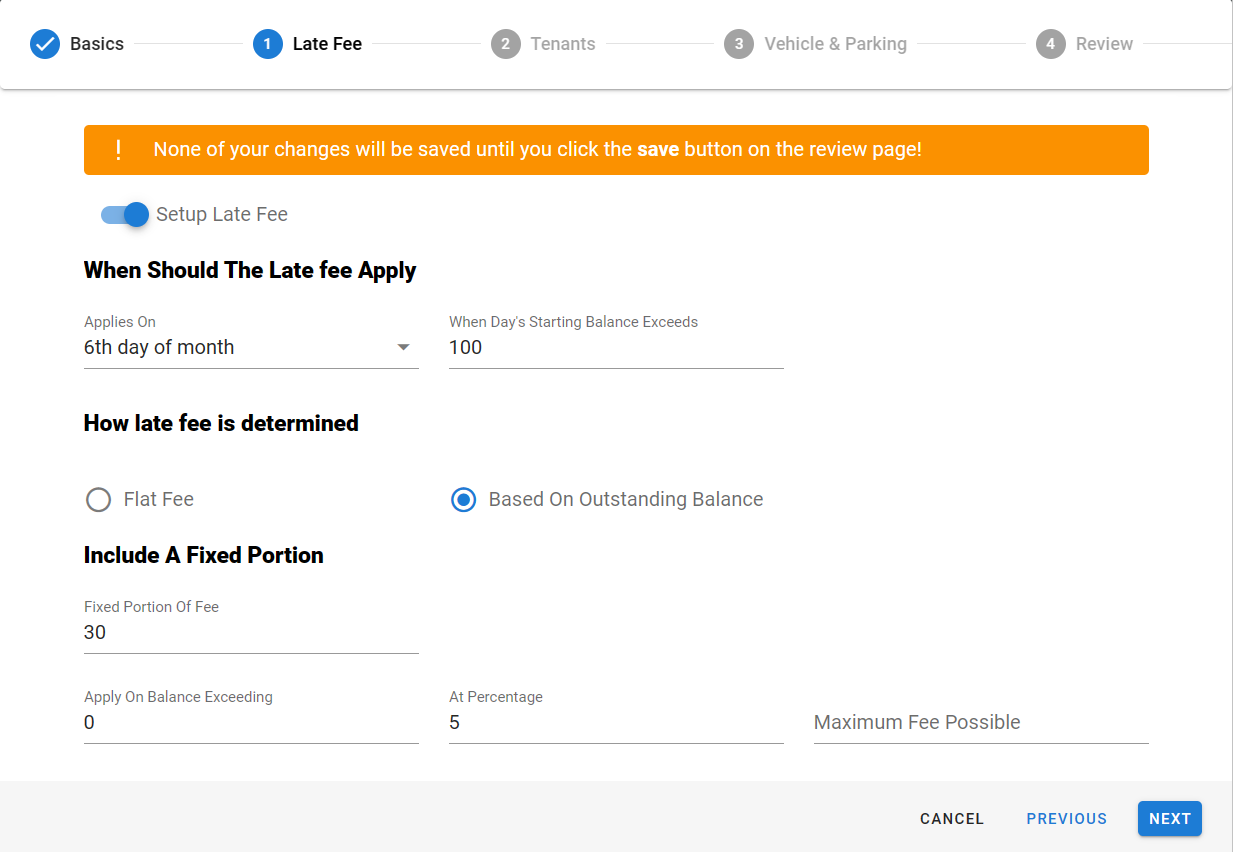As a landlord, it's essential to establish yourself as a professional and reliable figure to your tenants. This is especially crucial if you're new to the role and lack experience. In such cases, tenants may try to take advantage of you if you don't appear to have your affairs in order. One of the biggest challenges you may face is dealing with tenants who do not pay their rent on time.
Late rent payments can cause several problems for landlords. Some of the common problems landlords face due to late payments include:
1. Financial strain
Late rent payments can cause significant financial strain for landlords, especially if they rely on rental income to cover expenses such as mortgage payments, property taxes, and maintenance costs. Late payments can disrupt a landlord's cash flow and make it challenging to meet their financial obligations.2. Administrative work
Late payments can also create additional administrative work for landlords. They may need to send reminders, track payment history, and enforce late fees, which can be time-consuming and frustrating.3. Eviction proceedings
If a tenant continues to miss rent payments, the landlord may need to initiate eviction proceedings. This can be a lengthy and costly process, involving legal fees and court appearances.4. Tenant relationships
Late payments can also strain landlord-tenant relationships. Tenants who consistently miss rent payments may become defensive or unresponsive, leading to communication breakdowns and trust issues.5. Damage to property
In extreme cases, tenants who cannot pay rent may resort to damaging the property or abandoning it altogether, causing additional financial losses for the landlord.To avoid these problems, it's essential for landlords to have a clear rental agreement and a system in place for collecting rent payments and enforcing late fees.
My e-Property Manager is a software tool that can help landlords avoid the problems associated with late rent payments in several ways. By using My e-Property Manager, landlords can streamline their rental operations, reduce administrative work, and avoid the financial strain associated with late rent payments. The tool also helps to establish a clear and professional system for rent collection, reducing the likelihood of tenant disputes and strained landlord-tenant relationships.
If you find yourself in a situation where a tenant is not paying rent on time, here are some steps you can take:
1. Review the lease agreement
Before taking any action, review the lease agreement to determine the terms and conditions regarding rent payments, late fees, and eviction procedures. Make sure you understand your legal rights and obligations as a landlord. When you set up your rental properties on My e-Property Manager, you can input your lease terms, including the rent amount, security deposit, and any late fee calculations. This information is then used to generate invoices automatically. Having a rental lease in place can provide a clear framework for the rental relationship, help ensure that both parties understand their obligations, and provide a basis for resolving disputes if they arise.
2. Payment tracking
The tool tracks payment history, making it easier for landlords to keep track of rent payments and identify any patterns of late payment. My e-Property Manager is a platform designed to simplify the process of managing rental properties, including invoicing. The platform provides real-time invoices that reflect the lease terms, which can be customized based on your specific rental agreement. The invoices are easy to understand and provide a breakdown of the rent, security deposit, and any applicable late fees. Tenants can refer to the invoice to remind themselves when rent is due and how much they owe. This can help reduce the likelihood of missed or late payments.
3. Real-time Rent Ledgers
My e-Property Manager also allows you to view rent ledgers in real-time, giving you a clear overview of rent payments and late fees. This can help you stay organized and on top of your financial records. This can help landlords keep track of which tenants have paid and which ones are overdue, reduce the likelihood of disputes over missed or late payments, and be better prepared for tax reporting and legal action if necessary.4. Send a reminder
If a tenant is late with their rent payment, send a friendly reminder to let them know that the rent is due and ask when they plan to make the payment. Sometimes tenants may forget or have unexpected financial difficulties, so a reminder may be all it takes to resolve the issue.5. Communicate with the tenant
If the tenant fails to pay rent or respond to your reminder, try to reach out to them to discuss the situation. Find out if there are any underlying issues that are causing the delay and work with the tenant to come up with a payment plan that is feasible for both parties.6. Enforce late fees
If the lease agreement specifies a late fee, make sure to enforce it. Late fees can be an effective way to motivate tenants to pay rent on time and compensate for any additional expenses or administrative work involved in collecting late payments. Late fees can also serve as a deterrent for tenants who might otherwise be inclined to pay their rent late. Knowing that there will be additional charges if they are late can help tenants avoid the temptation to delay payment. One of the main advantages of using My e-Property Manager for invoicing is that it eliminates the need for manual calculations. The platform allows you to set up late fee calculations in the lease, which is reflected in the invoices. This means that the late fees are automatically calculated and applied, saving you time and ensuring that your business runs smoothly. You can customize the late fee calculation based on your lease terms, such as a fixed portion of the fee, a percentage of the rent amount, and the balance that triggers the late fee.
7. Use tenant portal
One way to establish your professionalism is by using a tenant portal. Using My e-Property Manager, a tenant portal is an online platform that enables tenants to view their lease agreements, payment history, and invoices. By providing a transparent and formal invoicing method that keeps track of payment history, tenants are less likely to take advantage of the situation. If you're a new landlord, using a tenant portal is a great way to make yourself look like a pro. It not only streamlines your rental operations but also gives your tenants the impression that you're experienced and organized. This can help you earn their trust and respect, leading to a more positive and productive landlord-tenant relationship.8. Consider legal action
If the tenant continues to ignore your requests and fails to pay rent for an extended period of time, you may need to take legal action. This could involve sending a formal demand letter, filing a lawsuit, or initiating eviction proceedings. Make sure to follow all legal procedures and seek advice from an attorney if necessary. My e-Property Manager provides a basis for legal action. If a tenant consistently fails to pay rent on time despite receiving invoices, the invoices can provide evidence in court if legal action becomes necessary.In conclusion, dealing with a tenant who is not paying rent on time can be stressful and challenging. However, by staying calm, following the lease agreement, communicating with the tenant, and taking appropriate action, you can resolve the issue and protect your financial interests as a landlord. Remember to always follow your state's guidelines for landlord-tenant law and act in good faith to ensure a positive outcome for everyone involved.
My e-Property Manager provides a comprehensive solution for managing rent payments and invoicing tenants. With features like real-time invoices, real-time rent ledgers, late fee calculation, and payment history tracking, the platform can help you stay organized and save time. By using My e-Property Manager, landlords can streamline their rental operations, reduce administrative work, and avoid the financial strain associated with late rent payments. The tool also helps to establish a clear and professional system for rent collection, reducing the likelihood of tenant disputes and strained landlord-tenant relationships.
If you're a landlord or property manager, consider using My e-Property Manager for easy and efficient invoicing.
"Please note that this blog is for informational purposes only and should not be considered as legal advice. For specific legal questions or disputes between landlords and tenants, it is recommended to seek the advice of a licensed attorney."